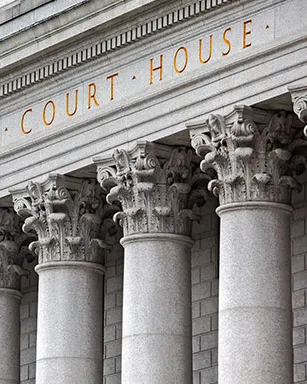The Ending Forced Arbitration of Sexual Assault and Sexual Harassment Act (EFAA) gives an employee the option of bringing claims related to sexual assault or harassment in court instead of arbitration. The EFAA, however, applies only to a “dispute or claim” relating to sexual assault or harassment that “arises or accrues” on or after March 3, 2022. What constitutes a “dispute” and when does it “arise”? Those terms are not defined in the EFAA.
These are the questions, among others, that courts have grappled with when determining the EFAA’s applicability.
Eighth Circuit
The U.S. Court of Appeals for the Eighth Circuit is the most recent appellate court to take up the issue.
In Eniola Famuyide v. Chipotle Mexican Grill, Inc., the district court declined to compel arbitration based on the following facts:
- In November 2021, a coworker allegedly sexually assaulted the plaintiff.
- The plaintiff allegedly reported the assault, but no one within the company investigated.
- In February 2022, the plaintiff’s attorney and the company’s attorneys exchanged letters regarding the plaintiff’s attorney’s investigation into the alleged assault and harassment and the plaintiff’s attorney demanded that the company preserve evidence.
- In July 2022, the plaintiff initiated a lawsuit against the company in court.
While each of these events offered different times when a “dispute” could have arguably arisen, the district court concluded that a “dispute” arose only when the plaintiff filed her lawsuit in July 2022 (two months after the effective date of the EFAA). Only then, according to the district court, had the plaintiff asserted a right, claim, or demand to which the company had taken a sufficiently adversarial or opposing position to constitute a “dispute.”
The company appealed, and the U.S. Court of Appeals for the Eighth Circuit heard oral argument on May 8, 2024. The three-judge panel questioned the company on whether equating a “dispute” with the alleged sexual assault in November 2021 would render the term “dispute” superfluous, as it would seemingly result in many cases in the “dispute arising” at the same time as the “claim accruing.” The Eighth Circuit, however, expressed particular interest as to whether the exchange of attorney letters pre-litigation was sufficient to trigger a “dispute” under the EFAA. This would make a difference in the case because the exchange of letters occurred in February 2022, before the enactment of the EFAA. The Eighth Circuit has jurisdiction over Arkansas, Iowa, Minnesota, Missouri, Nebraska, North Dakota, and South Dakota, and a decision in the case is expected this summer.
California
The California Court of Appeal for the Second District considered the same issue in Kader v. Southern California Medical Center, Inc., 99 Cal. App. 5th 214 (2024). There, like the district court in Famuyide, the California Court of Appeal held that a “dispute” does not “arise” within the meaning of the EFAA merely from the fact that sexual assault or harassment allegedly occurred; rather, in the court’s view, a “dispute” arises only when one party asserts a “right, claim, or demand” and the other side “expresses disagreement or takes an adversarial posture” to the right, claim, or demand.
Thus, as applied to the plaintiff in Kader, the court concluded that a “dispute” arose only when the plaintiff filed an agency charge with the California Civil Rights Department regarding the alleged harassment and obtained a right-to-sue notice. The court stressed that there was no prior evidence that the employee ever complained about the alleged sexual harassment internally nor did the alleged harasser deny the sexual harassment when he allegedly threatened to fire the plaintiff if the plaintiff disclosed the conduct. As such, the date when the plaintiff filed the agency charge in May 2022 controlled (approximately two months after the effective date of the EFAA), and the plaintiff’s claims relating to sexual harassment could not be compelled to arbitration.
***
Courts continue to work out the EFAA’s precise contours and applicability since its enactment in 2022. Jackson Lewis will continue to monitor developments with the EFAA and related arbitration issues.
© Jackson Lewis P.C. This material is provided for informational purposes only. It is not intended to constitute legal advice nor does it create a client-lawyer relationship between Jackson Lewis and any recipient. Recipients should consult with counsel before taking any actions based on the information contained within this material. This material may be considered attorney advertising in some jurisdictions. Prior results do not guarantee a similar outcome.
Focused on employment and labor law since 1958, Jackson Lewis P.C.’s 1,000+ attorneys located in major cities nationwide consistently identify and respond to new ways workplace law intersects business. We help employers develop proactive strategies, strong policies and business-oriented solutions to cultivate high-functioning workforces that are engaged and stable, and share our clients’ goals to emphasize belonging and respect for the contributions of every employee. For more information, visit https://www.jacksonlewis.com.


